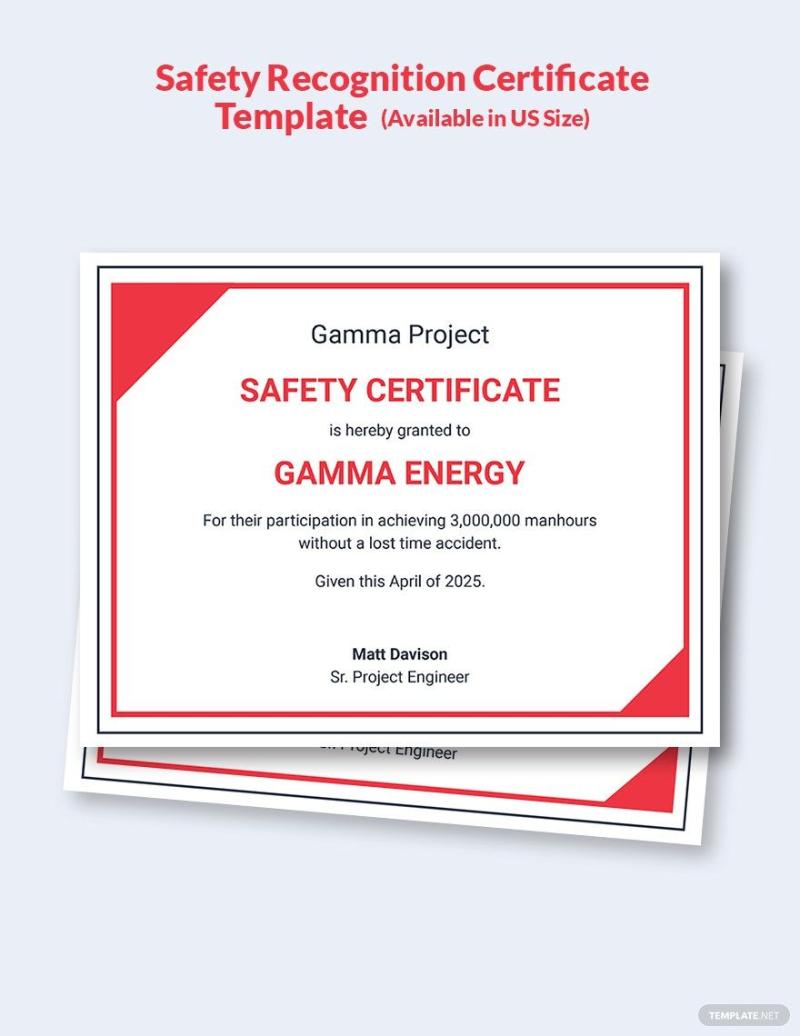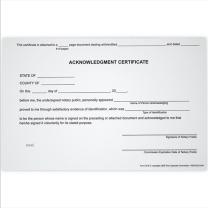What is a fire and safety certificate?
A fire and safety certificate is a document that signifies an individual's or organization's compliance with established fire safety standards and regulations. This certificate is typically awarded after successful completion of training, assessments, and adherence to specific safety protocols. The purpose and scope of a fire and safety certificate include:
Purpose:
Compliance with Regulations:
- Certificates demonstrate that an individual or organization has met the requirements set by local, state, or national fire safety regulations. This compliance is crucial for ensuring the safety of occupants and property.
Training Verification:
- Certificates often indicate that the holder has completed relevant fire safety training programs. This could include courses on fire prevention, emergency response, evacuation procedures, and the proper use of firefighting equipment.
Occupational Safety:
- In occupational settings, individuals may be required to hold fire and safety certificates to ensure a safe working environment. This is especially common in industries where there is an increased risk of fire-related incidents.
Emergency Preparedness:
- Certificates serve as evidence of an individual's or organization's commitment to emergency preparedness. This is crucial for efficiently responding to fire emergencies and minimizing potential damage.
Insurance Requirements:
- Some insurance policies may require businesses and facilities to maintain fire and safety certificates as part of risk management. Compliance with safety standards may affect insurance coverage and premiums.
Public Confidence:
- For businesses, having fire and safety certificates can enhance public confidence. It assures customers, clients, and stakeholders that the organization is committed to maintaining a safe and secure environment.
Scope:
Individual Certifications:
- Individuals can obtain fire and safety certifications through training programs offered by accredited institutions or organizations. Certifications may cover various aspects, such as fire prevention, firefighting techniques, and emergency response.
Occupational Certifications:
- Certain occupations, especially those in industries with heightened fire risks (e.g., construction, manufacturing), may require employees to hold specific fire and safety certifications. These certifications validate that individuals are trained to handle fire-related situations in their specific work environment.
Facility Certifications:
- Buildings, facilities, and businesses may be required to obtain fire safety certificates to ensure that they meet regulatory standards. This may involve inspections, adherence to building codes, and the implementation of safety measures.
Fire Equipment Certifications:
- Certificates may also be issued for specific fire safety equipment, such as fire extinguishers or sprinkler systems. This ensures that the equipment meets industry standards and is regularly inspected and maintained.
Training Program Certifications:
- Training programs designed to educate individuals on fire safety may receive certifications from relevant authorities, indicating that the program meets specific educational standards.
Industry-Specific Certifications:
- Certain industries may have specialized fire and safety certifications tailored to their unique risks and requirements. For example, the oil and gas industry may have specific certifications related to fire safety in hazardous environments.
It's important to note that the specific requirements for obtaining and maintaining fire and safety certificates can vary based on geographic location, industry, and the nature of the certification. Individuals and organizations should adhere to local regulations and standards to ensure the effectiveness and validity of their fire and safety certifications.
Credentials and Contributions of Fire and Safety Certificates: Career Advancement and Industry Relevance
1. Credentials and Qualifications:
Fire and safety certificates offer various credentials and qualifications, depending on the specific program and certifying body. Some common credentials include:
a. Knowledge and skills:
- Demonstrates knowledge of fire safety principles, codes, and regulations.
- Validates skills in fire prevention, emergency preparedness, and response techniques.
- Provides evidence of training in fire extinguisher use, evacuation procedures, and first aid.
b. Recognition and professionalism:
- Enhances your professional profile and demonstrates commitment to safety standards.
- Increases your credibility and employability in fire safety-related fields.
- May be recognized or required by certain employers and industries.
c. Specific certifications:
- Some programs offer specialized certifications focusing on specific areas like fire inspection, investigation, or code enforcement.
- These certifications provide advanced knowledge and skills in the chosen area and can lead to specialized career paths.
2. Career Advancement:
Fire and safety certificates contribute to career advancement in several ways:
a. Increased job opportunities:
- Many employers prioritize candidates with fire and safety training and qualifications.
- Earning a certificate can open doors to new job opportunities in various industries.
- It can also qualify you for higher-level positions within your current field.
b. Higher earning potential:
- Studies show that individuals with fire and safety certifications often earn higher salaries than their non-certified counterparts.
- Earning a certificate can demonstrate your value to an employer and increase your negotiating power for better compensation.
- Specialized certifications in specific areas can lead to even higher earning potential.
c. Enhanced professional development:
- The learning process involved in obtaining a fire and safety certificate enhances your knowledge and skills.
- It fosters continuous learning and keeps you updated on current fire safety codes and best practices.
- This ongoing professional development improves your overall competencies and makes you a more valuable asset in the workforce.
3. Industries and Roles:
Here are some industries and roles that typically require or benefit from a fire and safety certificate:
a. Fire protection and prevention:
- Firefighters, fire inspectors, fire investigators, fire alarm technicians, and hazardous materials specialists.
b. Construction and engineering:
- Construction safety officers, fire protection engineers, and safety coordinators.
c. Hospitality and tourism:
- Hotel managers, restaurant managers, event coordinators, and security personnel.
d. Healthcare and education:
- School administrators, nurses, facilities managers, and safety coordinators.
e. Manufacturing and industrial:
- Safety managers, industrial hygienists, and hazardous materials technicians.
f. Retail and warehousing:
- Store managers, warehouse supervisors, and loss prevention personnel.
g. Public safety and government:
- Police officers, emergency medical technicians, and building code inspectors.
In addition to these specific industries, a fire and safety certificate can be beneficial for anyone who works in an environment where fire safety is crucial, regardless of their position.
Overall, fire and safety certificates offer valuable credentials, contribute to career advancement, and are relevant to various industries and roles. If you are looking to improve your career prospects and enhance your knowledge and skills in fire safety, pursuing a certificate can be a valuable investment.









